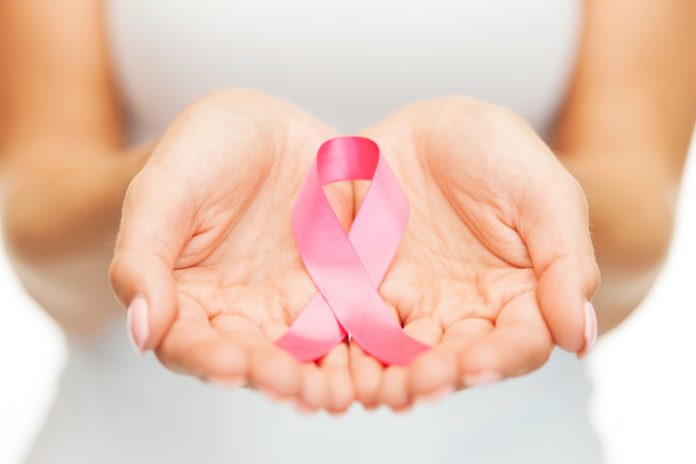Canadian Cancer Society’s Dr Rob Nuttall and Shawn Chirrey explain how fighting against breast cancer requires ongoing support for research and screening
In 2016, an estimated 26,000 Canadian women and 230 Canadian men were diagnosed with breast cancer. Breast cancer occurs when cells change and no longer grow or behave normally. A Canadian woman has a 1 in 9 chance of getting breast cancer during her lifetime.
Research in Canada and across the world has managed to boost survival rates from 70% in the early 1970s to 87% today. Thanks to this research and advances in screening, today we know more about how to diagnose and treat breast cancer than we ever have.
What increases my risk of getting breast cancer?
In general, about half of all cancers can be prevented by not smoking, exercising and maintaining a healthy body weight. The same goes for breast cancer – if you’re able to lead a healthier lifestyle, then your chances of getting breast cancer will go down.
While the risk of breast cancer increases with age, a personal or family history of breast cancer may further increase your risk. Additionally, studies have shown that women with inherited BRCA1 or BRCA2 gene mutations have up to an 80% chance of developing breast cancer in their lifetime. Women with these inherited mutations also have a higher risk of developing breast cancer at a younger age (usually before menopause) than other women.
Drinking alcohol also increases a woman’s risk for breast cancer. Even low levels of alcohol consumption (just over 1 drink per day) can increase a woman’s risk. The risk increases with the amount of alcohol consumed. One possible reason for this is that alcohol is thought to cause higher levels of oestrogen. Other factors that can increase a woman’s risk of breast cancer include obesity and hormone replacement therapy.
Are there tests for breast cancer?
In Canada, there are breast cancer screening programmes in each province and most territories. For women at average risk for developing breast cancer, mammogram screening is most effective every 2 years, between the ages of 50 and 74. It’s important to note that breast cancer risk varies from woman to woman, so you should make a point of discussing your personal risk with your doctor. If you have family members who have had breast cancer, or you carry a certain gene mutation, then you may be recommended to start breast cancer screening earlier and more often. If you have high breast density (75% or greater) you may be asked to screen annually.
Screening is done via mammography. A screening mammogram is used to look for breast cancer in women who don’t have any symptoms of the disease. It may be done in a clinic, screening centre or mobile screening mammography unit. During a mammogram, a plastic plate will be slowly pressed down to flatten your breast and hold it in place for a few seconds while two images of each breast are taken. You will feel some pressure on your breast during the x-ray.
Like most screening tests, there are benefits and limitations to mammography. Scientific evidence tells us that regular mammography screening leads to fewer deaths in women with breast cancer. This is because it helps finding breast cancer when it is smaller and more treatable, which increases the chances of survival. Limitations of mammography include having false positives, false negatives, or finding cancers that may never cause any symptoms (over-diagnosis).
If you want to learn whether a mammogram is right for you, then we encourage you to use our screening-decision aid tool called My Breasts, My Test. Launched last year, the tool will help you understand what factors to consider and help you to ask questions of your healthcare provider.
Supporting more survivors than ever before
Thanks to organised screening programmes, research, improved treatment options and prevention recommendation we now have more breast cancer survivors than ever. We’re grateful to now be able to turn more attention to survivorship and how we support women who are able to live their lives thanks to research.
Since merging with the Canadian Breast Cancer Foundation earlier this year, CCS is better equipped than ever to fund more research, prevent more diagnoses and support more Canadians affected by breast cancer. For those in Canada, if you’d like to speak with someone about yours or a loved one’s breast cancer diagnosis, you can visit http://support.cbcf.org/ to speak with a CCS representative, or call 1-888-939-3333 to speak with someone from CCS’s Cancer Information Service.
Rob Nuttall
Assistant Director, Health Policy
Shawn Chirrey
Senior Manager, Health Promotion and Community Engagement
Canadian Cancer Society











